# din
12 posts in `din` tag

Refund Adjusted Against Outstanding Demand: What You Need to Know
If your income tax refund is adjusted against an old tax demand, it’s likely due to Section 245 of the Income Tax Act. This blog explains what the notice means, how to respond within 30 days, and what options you have. Learn how to protect your refund and keep your tax records clean.
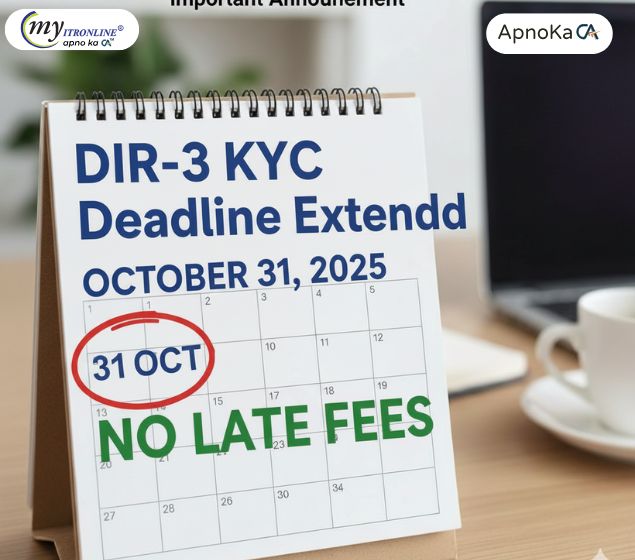
DIR-3 KYC Deadline Extended to October 31, 2025 – No Late Fees
The Ministry of Corporate Affairs (MCA) has extended the DIR-3 KYC deadline to October 31, 2025. This allows directors to file without incurring the ₹5,000 late fee and avoid DIN deactivation. Learn who needs to file, which form to use, and why early action is crucial.
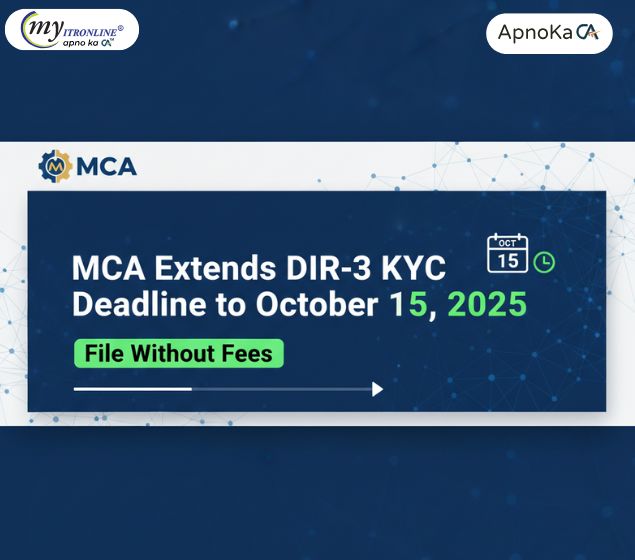
MCA Extends DIR-3 KYC Deadline to October 15, 2025 - File Without Fees
The Ministry of Corporate Affairs has extended the DIR-3 KYC filing deadline from September 30, 2025 to October 15, 2025, without any filing fees. This compliance requirement applies to all directors holding a DIN. Directors can file either DIR-3 KYC (with DSC) or DIR-3 KYC-WEB (OTP-based) forms. Non-compliance will result in DIN deactivation, penalties up to ₹5,000, and disqualification from director appointments. The extension follows stakeholder representations requesting additional time for compliance.
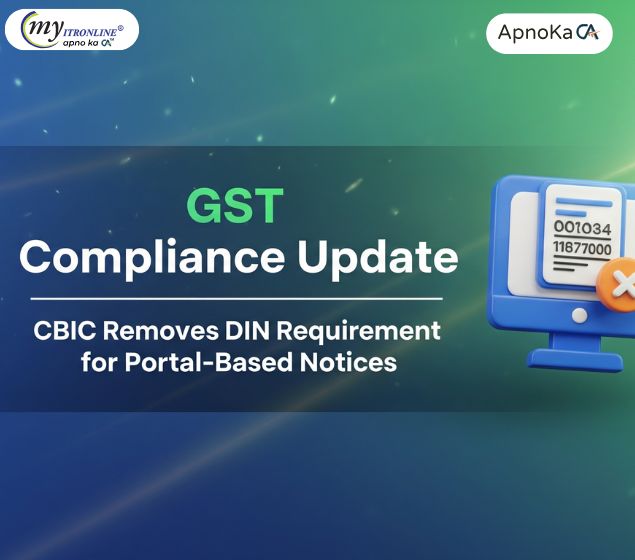
GST Compliance Update: CBIC Removes DIN Requirement for Portal-Based Notices
CBIC has released Circular No. 249/06/2025-GST, removing the mandatory use of DIN for communications issued via the GST portal. However, DIN remains compulsory for eOffice-based documents, as clarified in Circulars No. 23/2025 - Customs and 252/09/2025 - GST. This blog explains the changes and what taxpayers need to know.
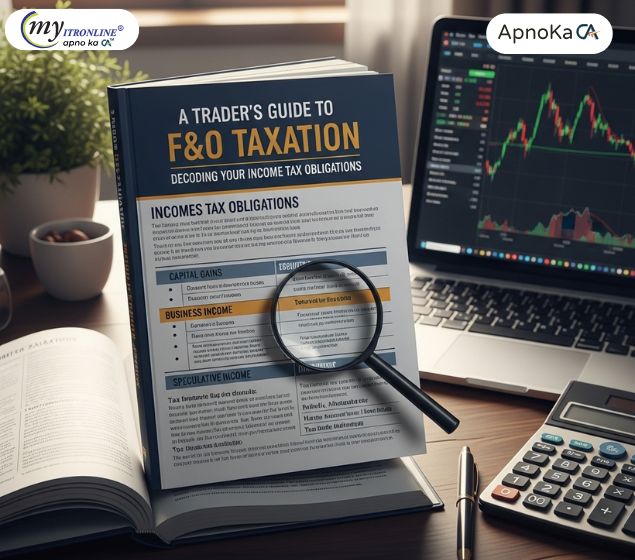
A Trader's Guide to F&O Taxation: Decoding Your Income Tax Obligations
This guide explains the crucial aspects of Futures & Options (F&O) taxation in India. It clarifies that F&O income is categorized as 'Non-Speculative Business Income', detailing how to calculate turnover based on 'absolute profit' plus premiums. The guide outlines various deductible expenses to reduce taxable income and explains when a tax audit is mandatory, especially for losses or specific turnover thresholds. Finally, it covers how to manage F&O losses through set-off and carry-forward, and provides essential information on ITR filing (ITR-3), applicable tax rates, and advance tax payments, ensuring traders stay compliant and manage their finances effectively.
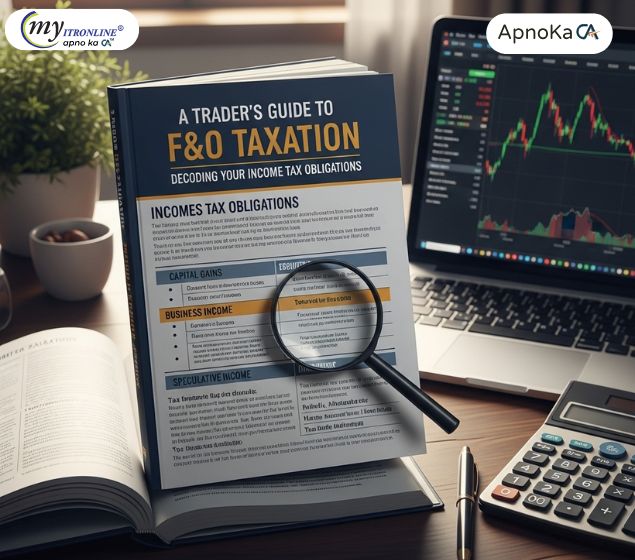
A Trader's Guide to F&O Taxation: Decoding Your Income Tax Obligations
This guide explains the crucial aspects of Futures & Options (F&O) taxation in India. It clarifies that F&O income is categorized as 'Non-Speculative Business Income', detailing how to calculate turnover based on 'absolute profit' plus premiums. The guide outlines various deductible expenses to reduce taxable income and explains when a tax audit is mandatory, especially for losses or specific turnover thresholds. Finally, it covers how to manage F&O losses through set-off and carry-forward, and provides essential information on ITR filing (ITR-3), applicable tax rates, and advance tax payments, ensuring traders stay compliant and manage their finances effectively.

CBDT's Game-Changer: Relaxing Black Money Rules for Taxpayer Relief
This blog details the recent changes by the CBDT in relaxing certain "black money" rules, aiming to provide significant relief to Indian taxpayers. It explains the rationale behind these changes, focusing on the rationalization of penalties, re-evaluation of "undisclosed" status, new opportunities for compliance, and a reduction in harassment and litigation. The article highlights who benefits from these relaxations, positions them within a broader shift towards trust-based taxation, and advises taxpayers on necessary steps to take.
.jpg)
How NRI Dividend Is Taxed in 2025: Rates, TDS, and Tax Planning
In 2025, NRIs receiving dividend income from Indian companies face a flat 20% tax plus surcharge and cess, deducted at source. With the abolition of Dividend Distribution Tax (DDT), the tax burden now lies with investors. However, NRIs can lower this liability using DTAA benefits, proper documentation, and strategic tax planning. This blog breaks down dividend tax rules, TDS rates, refund claims, and smart investment strategies to help NRIs make the most of their India growth story.
.jpg)
Navigating the Crypto Tax Minefield: A Detailed Guide for India's FY 2025-26
This blog provides a comprehensive guide to the taxation of Virtual Digital Assets (VDAs) and cryptocurrencies in India for the Financial Year 2025-26. It details the prevailing rules, including the flat 30% tax on all profits, the stringent policy of no loss set-off or carry forward, and the mandatory 1% TDS on transactions. The article also covers the tax implications for gifts, airdrops, and staking, along with the mandatory ITR filing requirements, to help Indian investors and traders navigate the tax landscape and ensure full compliance.
.jpg)
Important Relief from CBDT for Income Tax Filers
The Central Board of Direct Taxes (CBDT) has announced significant relief for taxpayers. A new circular extends deadlines for correcting income tax returns that were incorrectly invalidated by CPC-Bengaluru for Assessment Year 2023-24 and also provides an extended period to rectify returns where income was mistakenly excluded from assessment. This move aims to simplify compliance and ensure accurate tax records for citizens.
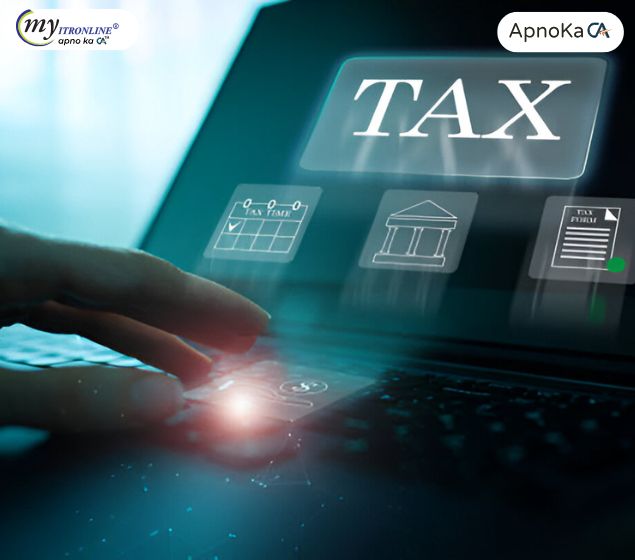
ITR-B Online: New Ease for Section 158BC Notices
This blog post details a significant update for taxpayers who have received a notice under Section 158BC of the Income-tax Act, 1961. It explains that Form ITR-B, a special return for undisclosed income found during past search and seizure operations, can now be submitted conveniently through the Income Tax portal's e-Proceeding tab. The article clarifies what a Section 158BC notice entails, highlights the benefits of online submission (convenience, efficiency, transparency), provides step-by-step guidance, and emphasizes the crucial role of professional advice for these complex assessments.
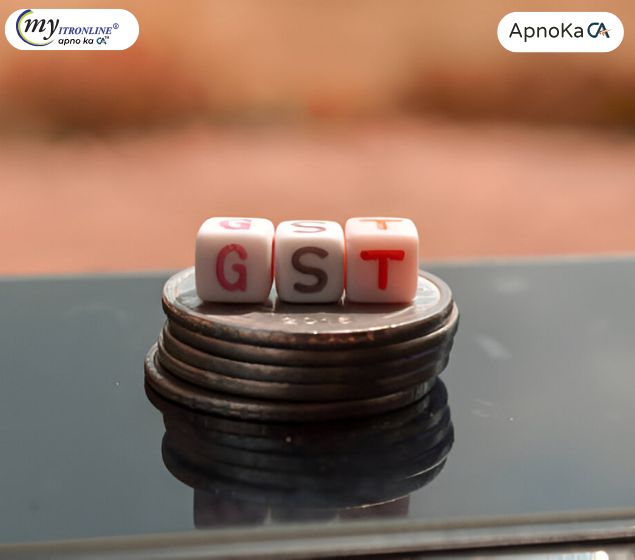
No DIN, No Problem! Your GST Notices Remain Valid.
The CBIC has clarified that GST notices from the official portal are now valid with a Reference Number (RFN), even without a separate Document Identification Number (DIN). The RFN serves as a unique identifier, making the DIN redundant for these digital communications. This move aims to reduce confusion, simplify verification, and emphasize digital communication. Taxpayers can use the RFN on the GST website to authenticate notices. Caution is advised for notices received without a DIN via other channels.
